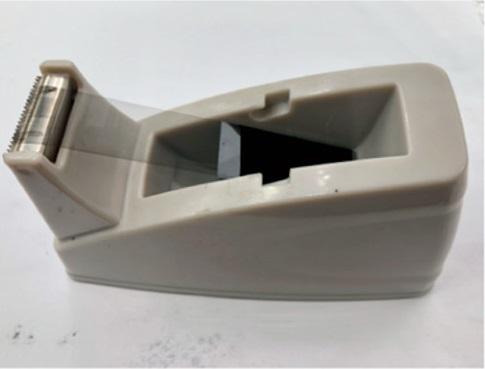
Credit: Adapted from Nano Letters 2019, DOI: 10.1021/acs.nanolett.9b01629
In very hot or cold environments, conventional tape can lose its stickiness and leave behind an annoying residue. But while most people can avoid keeping taped items in a hot car or freezer, those living in extreme environments such as deserts and the Antarctic often can’t avoid such conditions. Now, researchers reporting in ACS’ journal Nano Letters say they have developed a new nanomaterial tape that can function over a wide temperature range.
In previous work, researchers have explored using nanomaterials, such as vertically aligned multi-walled carbon nanotubes (VA-MWNTs), to make better adhesive tapes. Although VA-MWNTs are stronger than conventional tapes at both high and low temperatures, the materials are relatively thick, and large amounts can’t be made cost-effectively. Kai Liu, Xide Li, Wenhui Duan, Kaili Jiang and coworkers wondered if they could develop a new type of tape composed of superaligned carbon nanotube (SACNT) films. As their name suggests, SACNTs are nanotubes that are precisely aligned parallel to each other, capable of forming ultrathin but strong yarns or films.
To make their tape, the researchers pulled a film from the interior of an array of SACNTs — similar to pulling a strip of tape from a roll. The resulting double-sided tape could adhere to surfaces through van der Waals interactions, which are weak electric forces generated between two atoms or molecules that are close together. The ultrathin, ultra-lightweight and flexible tape outperformed conventional adhesives, at temperatures ranging from -321 F to 1,832 F. Researchers could remove the tape by peeling it off, soaking it in acetone or burning it, with no noticeable residues. The tape adhered to many different materials such as metals, nonmetals, plastics and ceramics, but it stuck more strongly to smooth than rough surfaces, similar to regular tape. The SACNT tape can be made cost-effectively in large amounts. In addition to performing well in extreme environments, the new tape might be useful for electronic components that heat up during use, the researchers say.
###
The authors acknowledge funding from the National Key Research and Development Program of China, the National Natural Science Foundation of China and the Beijing Advanced Innovation Center for Future Chip.
For more research news, journalists and public information officers are encouraged to apply for complimentary press registration for the ACS fall 2019 national meeting in San Diego.
The American Chemical Society, the world’s largest scientific society, is a not-for-profit organization chartered by the U.S. Congress. ACS is a global leader in providing access to chemistry-related information and research through its multiple databases, peer-reviewed journals and scientific conferences. ACS does not conduct research, but publishes and publicizes peer-reviewed scientific studies. Its main offices are in Washington, D.C., and Columbus, Ohio.
To automatically receive news releases from the American Chemical Society, contact [email protected].
Follow us on Twitter | Facebook
Media Contact
Katie Cottingham
[email protected]



